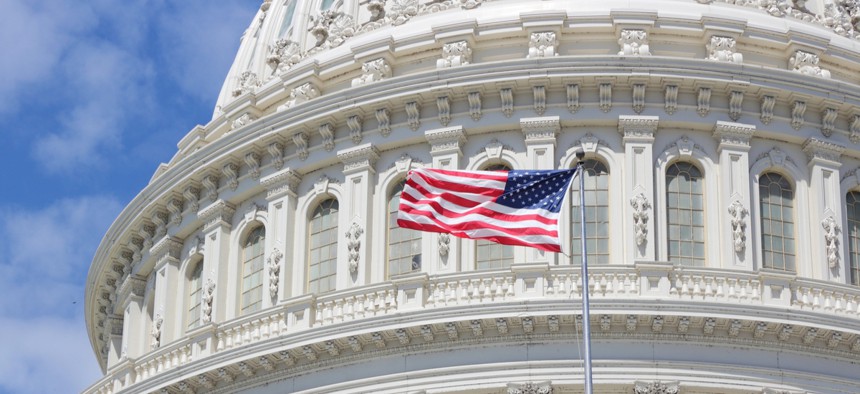Senate Sends Shutdown-Averting Spending Bills to Trump

Tupungato/Shutterstock.com
President is expected to sign the $1.4 trillion measures that would boost funding for most agencies and provide a 3.1% pay raise to civilian feds.
The Senate on Thursday approved a pair of bills that will set line-by-line funding for every agency in the federal government and provide most of them with a significant funding boost, avoiding a shutdown.
The pair of appropriations bills will now head to President Trump, who is expected to sign them into law ahead of a Friday night deadline when the current continuing resolution keeping government open is set to expire. The bills will allocate $1.4 trillion: $738 billion to the military and $632 billion to non-defense agencies, increases over fiscal 2019 of $22 billion for the Pentagon and $27 billion for non-defense.
Top lawmakers reached an agreement with the Trump administration last week on the spending agreement after months of negotiations and two continuing resolutions. Appropriators unveiled the two bills—divided into national security and domestic categories—late Monday afternoon and the House approved them on Tuesday. The domestic and international assistance bill passed the Senate 71-23; the national security bill, 81-11.
A slate of policy changes that will impact federal employees and operations across government also made their way into the final appropriations language, including a 3.1% pay raise for the entire workforce. See a full breakdown of the most significant takeaways for agencies here.
Negotiators were motivated to reach a deal on full appropriations by a two-year budget agreement Trump signed into law earlier this year, which significantly raised caps for both defense and nondefense spending. Republicans highlighted their priorities of boosting military funding and securing some funding for fencing along the U.S.-Mexico border, a sticking point that led to a 35-day shutdown that ended earlier this year. Democrats pointed to wins in providing record funding levels for the National Institutes of Health, fighting the opioid crisis, changes to health care pricing, dramatically boosting funding for the 2020 Census, $425 million for election security grants and for the first time in 20 years providing $25 million for gun violence research.
Senate Majority Leader Mitch McConnell, R-Ky., praised his colleagues for taking agencies off of CR autopilot.
“Ensuring the federal government makes careful use of tax dollars is an uphill battle by definition,” McConnell said on the Senate floor Tuesday. “So it is critical that we plan in advance and plan for the full year ahead rather than careen from one short-term stopgap to another.”
The measures will keep agencies funded through the end of the fiscal year on Sept. 30, setting the stage for the next spending fight just more than a month before the presidential election.
NEXT STORY: NOAA taps cloud providers for data






